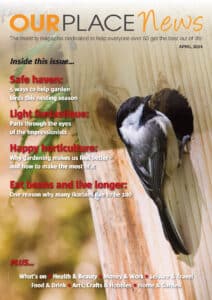Post retirement options
If you have taken the plunge to retire, the first thing Our Place recommends you consider taking a long, hard look at your finances. If you have a lump sum of money, whether from savings, tax-free cash from your pension fund or a windfall of some kind, consider how you can get the most from it and also look into any existing investments you have.
The next step is to pay off loans and credit cards because the interest on them is usually much higher than you will be able to get on your savings and will eat away at your money over time. Once the loans and credit card debts are taken care of, Our Place advises for you to put some ‘rainy day’ money in an easy access account for emergencies.
As a rough guide, three to six months worth of living expenses is usually enough but it is imperative you are strict with yourself so try to stave off the urge to use it for anything other than real emergencies. We know it’s easier said than done but you’ll be better for it.
Emergency funds
For the rest of your money, cash accounts are safe and accessible, but, due to inflation, you’ll be able to buy less and less with your money over time. The good news is you can do something about it by making your money work much harder for you; there are a number of ways you can invest your money, including but not limited to:
• ISAs
• Investment bonds
• Structured and fixed rate bonds
• Collective investments (these are pooled investments such as unit trusts)
• Shares
• Property
Each of these types of investment offer different returns on your money and different risks. It’s important to understand that the higher the potential return, the greater the risk you run of losing money. It’s sensible to spread that risk across different investments and not put all your eggs in one basket.
You should also always bear in mind that the value of your investment can go down as well as up, and you may get back less than you invested. As well as considering the level of risk you’re happy to accept, you should also think about whether you can afford to tie up your money for some time.
Generally, the longer you invest, the more likely you are to receive better returns, so you should only invest money that you think you can do without for a considerable length of time. You should talk to a
financial adviser to find out which type of investments would be suitable for you.
Choose the right investment for you
Choosing the right investments also depends on what you want to achieve by investing. How long do you want to invest for? Which investment is most tax efficient? Will you worry about how your investment is doing? What happens if things don’t go as well as you expected?
Some types of investment will offer you the potential for growth, some will provide you with an income and some will offer a combination of both. We’re all different, so what’s suitable for somebody else might not be for you. Make sure that you get some
professional advice and that you’re happy with your decisions.
Our Place believes feeling secure about the choices you have made is perhaps the most important thing in the end so if you’re worried about how secure your money will be, there are some investments that offer guarantees. However, before you hand over any money, check that you’re investing with a reputable company and seek independent financial advice.
Whatever your needs, there are products out there that can meet them, so why not have a look at what’s available. If you want to learn about the products out there, take a look at the professional advice service Unbiased and their savings and investment section.
Our Place strongly recommends that you talk to a
financial adviser about how to invest your money, especially if you’re considering moving an existing investment. They can help you assess your situation and recommend the best course of action.
If you don’t have an adviser, you can find one at the Unbiased website or you can use Our Place’s recommended financial adviser John Boyce.
Do you work in the public sector or know someone who does? Click here for more information

